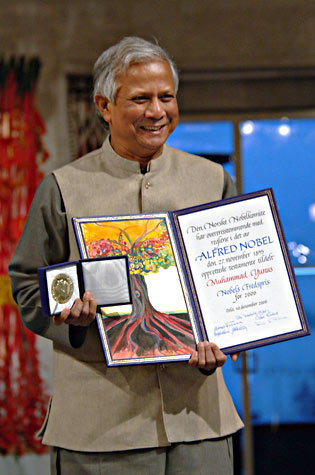Without discounting the seriousness of the situation, particularly since world financial markets are so interconnected, history tells us that the next generation of innovators and entrepreneurs will likely see it as an opportunity.
According to the U.S. National Bureau of Economic Research from 1945 to 2007 there have been 10 recessions, lasting on average 10 months from peak to trough. I'm unfortunately old enough to distinctly remember at least four of them:

- 1973-1975 - A quadrupling of oil prices by OPEC coupled with high government spending due to the Vietnam War lead to stagflation in the U.S. (sound familiar?).
- 1980-1982 - The Iranian Revolution sharply increased the price of oil around the world in 1979, causing a global energy crisis (I can still remember even/odd license plate gas rationing). Tight monetary policy in the U.S. to control inflation lead to a recession.
- 1990-1991 - Driven by significant production and manufacturing-trade sales decreases, brought on, in part, by the rise of Japan's manufacturing prowess.
- 2001-2003 - Caused by the collapse of the dot-com bubble, 9/11, and accounting scandals driven by companies like Enron.
This list doesn't even include "Black Monday", October 19, 1987 when the U.S. stock market shed 508 points in a single day (22.6%). I'll never forget that day because, just before U.S. markets closed and it was clear that there had been a significant meltdown, the guy next door to me at IBM came into my office, sat down in a chair, put his head in his hands, and started to cry.
What so many people forget during times like these times is that an upended status quo might be the best time to invest in the new, still ill defined, status quo that will emerge from the chaos. Some world changing innovations, companies, and social entrepreneurs had their start during recessions, for example:
 1973-1975 - Interactive laser discs and the first floppy disk drive make their debut. The first cell phone call is made at Motorola. One of the first commercial PCs, the Altair 8800, is shipped as a mail-order kit for $397. Paul Allen and Bill Gates write the first computer language program for personal computers; Gates later drops out of Harvard and founds Microsoft with Allen (and the rest, as they say, is history). In 1976, Steve Wozniak designs the first Apple computer and with Steve Jobs co-found Apple Computer. That same year, Muhammad Yunus (right) launches an "action research project" that eventually becomes the Grameen Bank, a groundbreaking social enterprise that nets Yunus the Nobel Prize in 2006.
1973-1975 - Interactive laser discs and the first floppy disk drive make their debut. The first cell phone call is made at Motorola. One of the first commercial PCs, the Altair 8800, is shipped as a mail-order kit for $397. Paul Allen and Bill Gates write the first computer language program for personal computers; Gates later drops out of Harvard and founds Microsoft with Allen (and the rest, as they say, is history). In 1976, Steve Wozniak designs the first Apple computer and with Steve Jobs co-found Apple Computer. That same year, Muhammad Yunus (right) launches an "action research project" that eventually becomes the Grameen Bank, a groundbreaking social enterprise that nets Yunus the Nobel Prize in 2006.
- 1980-1982 - Atari becomes the first company to register a copyright for two computer games, "Asteroids" and "Lunar Lander". Iomega, Quantum, SGI, Maxtor, Symantec, Sun, Lotus, Compaq, Norton Utilities, and Adobe, all pioneering computer companies, are founded. IBM introduces the IBM Personal Computer with a starting price of $1,565. The first successful portable computer, the Osborne I (at 25 pounds!), is introduced. Apple is the first PC manufacturer to hit the $1 billion mark for annual sales.
- 1990-1991 - Tim Berners-Lee at CERN proposes a "hypertext" system, which is the start of the Internet as we know it today. Microsoft releases Windows 3.0 and sells more than 3 million copies in a year. The first search engine, Archie, is written by a team at McGill University in Canada. The National Science foundation opens the Internet to commercial use. Linux is introduced and the World Wide Web is launched to the public. Teach For America, the largest provider of teachers for lower income communities in the U.S., is launched as the result of a senior thesis by Princeton undergraduate student Wendy Kopp.
- 2001-2003 - Napster reaches over 26 million users in early 2001 (later filing for bankrupcy in 2002 due to record company litigation but too late to stop the digital music era). MacAfee introduces the first handheld virus protection software. Apple introduces the iPod. Early in 2004, Google launches Gmail.
No comments:
Post a Comment